Certificate course
On
Artificial Intelligence, National Security and Warfare:
Fundamentals and Interdependencies
Delivery method
The course will be entirely online and will be delivered through a combination of lectures, case studies, group discussions, and practical exercises. Participants will also will have access to online resources, recorded lectures, reading materials, and expert insights to deepen their understanding of the subject matter. The highly interactive sessions aim to give participants a comprehensive understanding of each topic.
Mode of session
- Along with live sessions, recorded lectures will also be provided to the participants.
Eligibility
The cohort would comprise of 200 fellows. We accept students from an array of academic backgrounds and strive to provide a comprehensive programme that accommodates students with different degrees of experience and background knowledge. Our ideal candidates will have earned an undergraduate degree already or be enrolled in one right now.
Structure
The course is designed to span six weeks, requiring a total commitment of approximately five hours per week. Participants will attend five classes per week, scheduled from Monday to Friday. The certification course classes are scheduled from 7:00 to 8:00 PM. To successfully complete the course, participants must complete six modules, each taught by a different instructor. Course Duration: March 3, 2025 – April 11, 2025
Target Audience:
- Researchers, Scholars, and Students – Those exploring AI applications in security, including postgraduate students and early-career researchers.
- Computer Science & Engineering Students (B.Tech, M.Tech, PhD) – Students specializing in AI, cybersecurity, data science, and related fields.
- Political Science & International Relations Students – Students interested in AI’s impact on geopolitics, diplomacy, and security studies.
- Policymakers and Government Officials – Diplomats, bureaucrats, and officials engaged in defense, cybersecurity, and national security.
- Academicians and Journalists – University faculty, independent scholars, and media professionals covering AI, defense, and security issues.
- Military and Defense Personnel – Armed forces officers, strategic planners, and professionals working on AI applications in defense.
- Intelligence and Security Professionals – Analysts, cybersecurity experts, and professionals involved in national and international security operations.
Course objectives
- Gain insights into the fundamental concepts and applications of artificial intelligence in national security and warfare.
- Explore the evolution of AI-driven autonomous systems, cyber defenses, and weapon platforms in modern military operations.
- The ability to evaluate the extent of Artificial Intelligence in expanding the national power of individual state as well as the features of international system
- Understand the shifting of Balance of Power with the use of AI
- Examine the ethical dilemmas, legal considerations, and societal implications associated with the use of AI in warfare.
Certification
Upon successful completion of the course modules, the participants will be expected to submit an assignment. On submission, they would receive a certificate of achievement, acknowledging their proficiency in understanding the interdependencies between AI, national security, and warfare.
| Artificial Intelligence, National Security, and Warfare: Fundamentals and Interdependences | ||
| Module 1 | Warfare in mankind’s history and the fundamental concept of Artificial Intelligence | Week 1 |
| Module 2 | Implications of AI technologies for national security activities, including strategy formulation, military tactics and intelligence gathering | Week 2 |
| Module 3 | AI, Machine Learning, ChatGPT, and Data Science, and its impact on National Security | Week 3 |
| Module 4 | Artificial Intelligence and Shifting the Balance of Power | Week 4 |
| Module 5 | Weaponization of Emerging Technologies and ethics of AI in national security affairs. | Week 5 |
| Module 6 | Contemporary methods of warfare: hybridization and informatization | Week 6 |
Program Advisors

Prof. (Dr). Shalendra D. Sharma
Associate Vice President and Lee Sahu Kee Foundation Chair Professor of Political Science, Lingnan University, Hong Kong.

Dr. Kirill Sablin
Research Fellow at Russian State Institute of Performing Arts, Saint-Petersburg, Russia

Prof. Dr. Teddy Mantoro
Director of School of Computer Science, Nusa Putra University, West Java, Indonesia.
Course Fees
The total course fee would be 1000 INR
Queries
Email Id: forumforglobalstudies@gmail.com
Phone No.: +91-8527810576
Our Experts
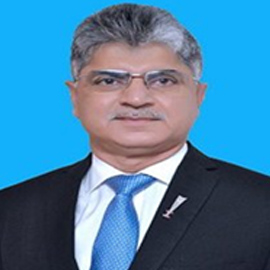
Maj Gen Sanjay Soi
Advisor to Forum for Global Studies, New Delhi
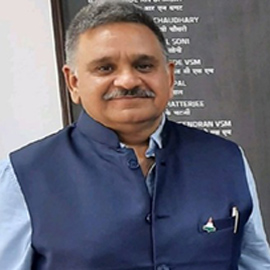
Air Vice Marshall Dr. Devesh Vatsa
Advisor to Data Security council of India (DSCI), New Delhi

Dr. Arthit Thongin
Assistant Professor, Sukhothai Thammathirat University, Thailand

Gusti Aju Devwi
Founder of ISOG and AI Specialist, Jakarta, Indonesia
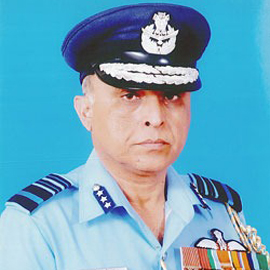
Air Marshall Anil Khosla
Former Vice Chief of Air Staff of the Indian Air Force
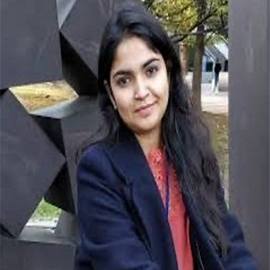
Gitanjali Sinha Roy
Assistant Professor, Jindal School of International Affairs, O.P. Jindal Global University

Dr. Varsha Turkar, (Ph D, IIT Bombay)
Professor and Head at Vidyalankar institute of technology, Mumbai.
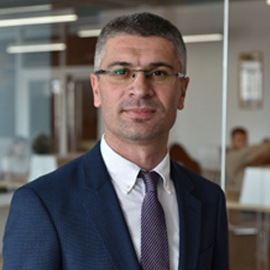
Dr. Zhak Manukyan
Head of the Chair of International Relations and Diplomacy of Faculty of International Relations of Yerevan State University
Our knowledge Partners

CYBER PEACE FOUNDATION, NEW DELHI

GEBRIC, [UNIVERSITY OF SAO PAULO], BRAZIL
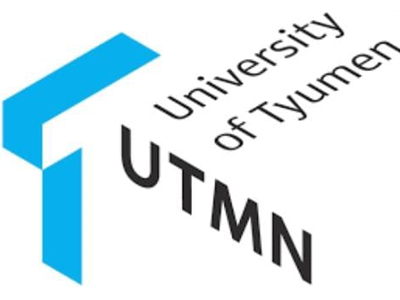
UNIVERSITY OF TYUMEN, RUSSIA
| WEEK | MODULE | DETAILS | No. of Sessions |
| 1 WEEK | MOD -1 | The fundamental concept of Artificial Intelligence and Warfare in mankind’s history | 5 Sessions |
| This module presents a general overview of the broad interdisciplinary concept. It explains a brief history of artificial intelligence and examines how emerging technologies such as Artificial Intelligence (AI) are shaping the future of warfare and strategic decision-making. It explores the evolution of warfare throughout human through the different case studies. It Focuses on the following points: | |||
| 1. The fundamental concept of Artificial Intelligence (AI) | |||
| · A brief history of the application of computer technology in the humanities | |||
| · Machine and Deep Learning | |||
| · Natural language processing (NLP) | |||
| · The Internet of Things and Robotics | |||
| · GenAI in the Humanities. | |||
| 2. Historical Perspective on Warfare | |||
| To examine the major epochs of warfare, from ancient to contemporary global wars. | |||
| Explore the interconnection between AI and Warfare | |||
| Cases Study Deployment of AI-driven drones in Russia -Ukraine War | |||
| 2 WEEKS | MOD -2 | Implications of AI technologies for national security activities, including strategy formulation, military tactics and intelligence gathering | 5 Sessions |
| 1. AI and Its Role in National Security | |||
| · Fundamentals of AI: Explain AI, machine learning, and their specific applications in defense. | |||
| · Advantages and Challenges: Benefits of AI in enhancing national security and the challenges it poses. | |||
| · Case Studies: Examples of AI applications in national security, such as surveillance and autonomous systems |
| 3 WEEK | MOD-3 | AI, Machine Learning, ChatGPT, and Data Science, and its impact on National Security | 5 essions |
| 1. Unlock the Secret Link between AI & Global Power- | |||
| · Hidden Tech Giants’ Influence: Learn how top companies shape international relations. | |||
| · Surprise AI Milestones: Explore turning points that changed national security. | |||
| · Inside Scoop on Global Alliances: Uncover how AI reshapes diplomatic strategies | |||
| 2. The Mind-Blowing Future of Hybrid Warfare, | |||
| · Shocking AI-Driven Tactics: Discover real cases where AI & disinformation converge. | |||
| · Misinformation Warfare: See how ChatGPT-like tools can reshape public opinion. | |||
| · Behind-the-Scenes Tension: Hear about states secretly testing AI in covert operations | |||
| 3. Top Secret: How AI is Rethinking Military Strategy, | |||
| · Data-Driven Tactics Revealed: Find out how armies leverage predictive analytics. | |||
| · The Next-Gen Drone Revolution: Learn how machine learning optimizes precision strikes. | |||
| · Spy vs. Spy: Discover AI’s growing role in intelligence and counterintelligence | |||
| 4. AI Ethics: The Shocking Truth Behind Weaponized Tech, | |||
| · Silent Killers: Delve into the autonomy debate of lethal weapon systems. | |||
| · Hidden Algorithm Bias: Understand how flawed AI can provoke unintended conflicts. | |||
| · Global Crackdown: Explore efforts by the UN, NATO, and others to regulate dangerous AI usage | |||
| 5. Revealed: Will AI Tip the Balance of World Power? | |||
| · Emerging Global Leaders: Check out which nations are set to dominate AI development. | |||
| · Surprising Alliances: See how AI reshuffles political and economic partnerships. | |||
| · A Glimpse into 2030: Project future scenarios that could redefine national security |
| 4 WEEK | MOD-4 | Artificial Intelligence and Shifting the Balance of Power | 5 Sessions |
| 1. Historical context: Technology and power shifts | |||
| · Technological innovations and massive geopolitical shifts | |||
| · AI as a strategic asset in international relations | |||
| 2. India’s AI Policy and Strategic Choices | |||
| · India’s AI Governance Strategy in an evolving global Dis-order | |||
| 3. The AI Race between the US and China: Implications on Global Governance | |||
| · Major Areas of US-China AI Competition | |||
| · US AI initiatives vs. China’s military AI development. | |||
| 5 WEEK | MOD -5 | Weaponization of Emerging Technologies and ethics of AI in National Security Affairs | 5 Sessions |
| 1. The Concept of Weapons and Weaponization | |||
| · Definition and Evolution of Weapons: Explore the history and evolution of weapons from traditional tools to modern technology. | |||
| · Concept of Weaponization: Define weaponization and discuss its general application across different contexts. | |||
| · Technological Advancements: Overview of how technology has transformed weapons and the process of weaponization over time. | |||
| 2. Overview of Emerging Technologies in National Security | |||
| · Definition and Examples: Introduce key emerging technologies relevant to national security (e.g., AI, drones, quantum computing). | |||
| · Historical Context: Brief history of technology in warfare and national security. | |||
| 3. Ethical Implications of Weaponizing Emerging Technologies | |||
| · Ethical Theories: Introduction to key ethical theories relevant to the use of AI and technology in warfare (utilitarianism, just war, deontological). | |||
| · Key Ethical Issues: Discuss autonomy in weapons, accountability, bias, and decision-making in AI systems. | |||
| · Integrated Case Studies: Examples illustrating ethical dilemmas in the weaponization of emerging technologies. | |||
| 4. Future Directions and Policy Considerations | |||
| · Future Trends: Predict future developments in emerging technologies and their potential impact on national security. | |||
| · Policy Recommendations: Discuss how governments can create policies to manage the ethical use of AI in national security. | |||
| · Global Cooperation: Importance of international collaboration in regulating the weaponization of emerging technologies. |
| 6 WEEK | MOD-6 | Contemporary methods of warfare: hybridization and informatization | 5 Sessions |
| 1. Hybrid Warfare and its Characteristics | |||
| · The Fusion of Traditional and Non-Traditional Tactics | |||
| · Disinformation and Psychological Warfare- Russia’s Actions in Ukraine | |||
| 2. Informatization Warfare: Reshaping National Security | |||
| · Artificial Intelligence (AI) and Big Data | |||
| · Cognitive and Psychological war fare | |||
| · Major Players: USA, China and Russia |
